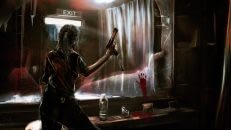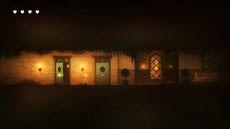GDC 12: Failure Is The Price You Pay For Later Success
The first IGF panel of the morning was all about failing. Ron Carmel of 2D Boy opened up the panel by setting some objectives. The purpose of the Failure Workshop is to promote collective learning and dispel the myth of easy success. Failure is the price you pay for later success.
First up was Jamie Cheng of Klei Entertainment, talking about his game Sugar Rush. Sugar Rush took 3 years, had 5 different art styles, 3 closed betas and was 2 weeks away from shipping before it was canceled. It started as Eets: Sugar Rush and was originally conceived as marshmallows fighting each other. Then they dropped “Eets” and redid the art style in 2007 to appeal more to “tweens”. They redid the art style again right before their publisher shut down and they lost facing. They cancelled the game in 2008, but then decided to switch to console and changed the art style again, got a new publisher and changed the name to Scrappers. FAIL.
Up next was Amir Rao from Supergiant Games presenting the dumped gardening feature from Bastion. Amir explained that the concept for gardening “sprung” from a game design problem: How do we provide a cohesive framework for exploration, items and upgrades? Why planting of course! Players would find seeds and upgrades throughout the world and plant them at the Bastion, water them with cores and then collect the sprouted power-up. The only problem was that the team spent over a year trying to get this to work and players had no idea what was happening. What does a hammer upgrade tree look like? You know what people understand more than planting? A Menu! Amir pointed out that as an indie developer they worked on solving a problem in a different way – and it failed. But the good news is that you always have the conventional way to fall back on.
“Success consists of going from failure to failure without loss of enthusiasm.” -Winston Churchill
Scott Anderson of Enemy Airship talked next about why Shadow Physics (video above) was cancelled. The biggest reason of course was that while the game had a great concept, it just wasn’t much fun. Scott confessed that, “We became driven by external rewards such as fortune and fame.” Development of Shadow Physics was plagued by a other problems including poor communication, funding problems and tons of technical and design issues. The game was originally funded by Indie Fund for XBLA. Scott believed this was a huge problem since they had a small budget but were chasing big budget titles on Live Arcade. Ultimately, the game was canned because of losing funding, but by the end there was no real champion of the game. You can follow Scott’s thoughts and learn more about Shadow Physics’ failures at impossibleland.tumblr.com
The failure workshop closed with Colin Northway of Fantastic Contraption fame showing off some of the prototypes that never really amounted to much. His first concept was a game called “Flocking” where different birds grouped together and acted differently. While Colin still loves the idea, he could never get it together. He also showed off a game called Clutter that he spent 6 months on and submitted to the IGF, but it never had the raw fun of Fantastic Contraption. Colin came up with a rule of thumb when doing game design: Your job is to find the sweetest fruit in the garden not to eek out the most fun from a bad concept. All of these failed prototypes led to a game that Colin is seriously excited about: Incredipede (which has a great new art style).





